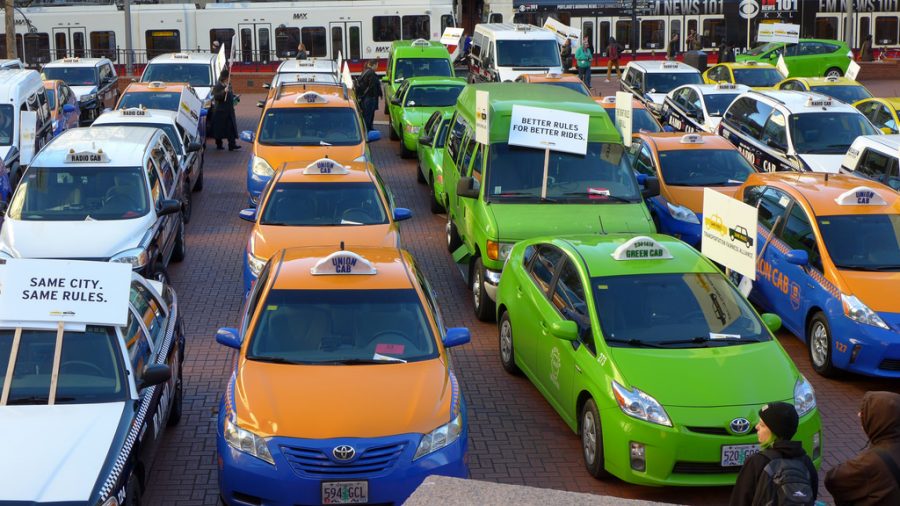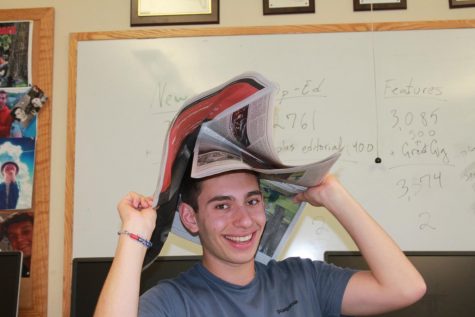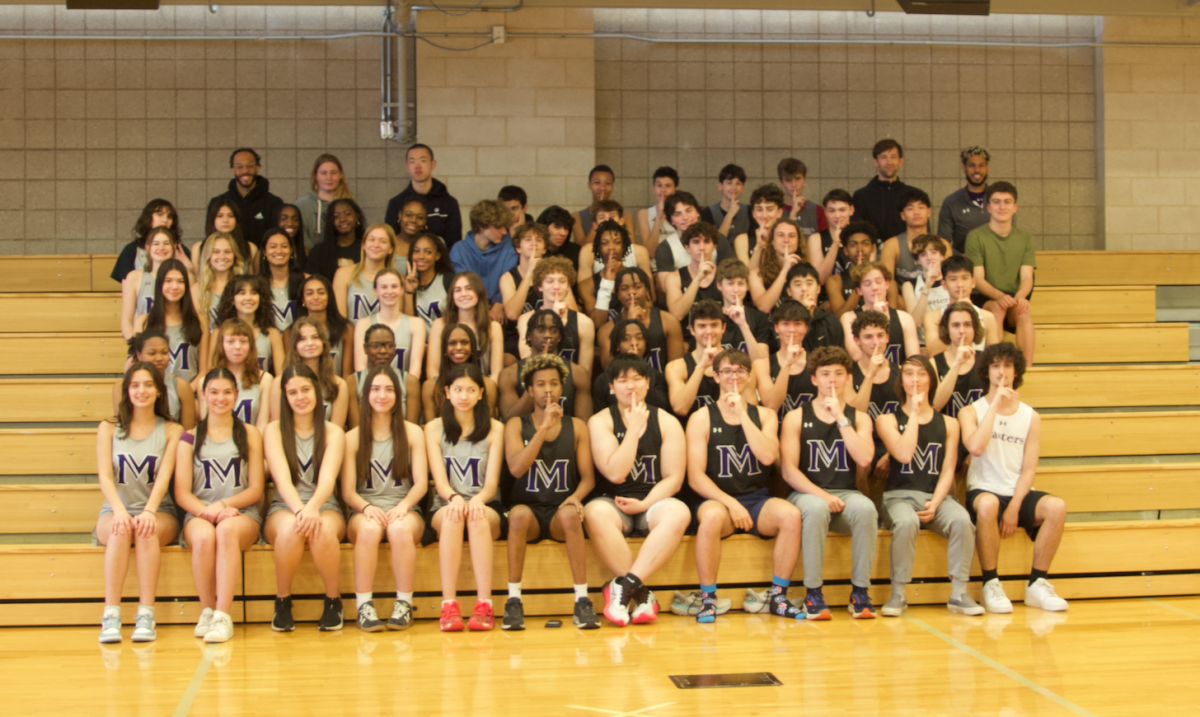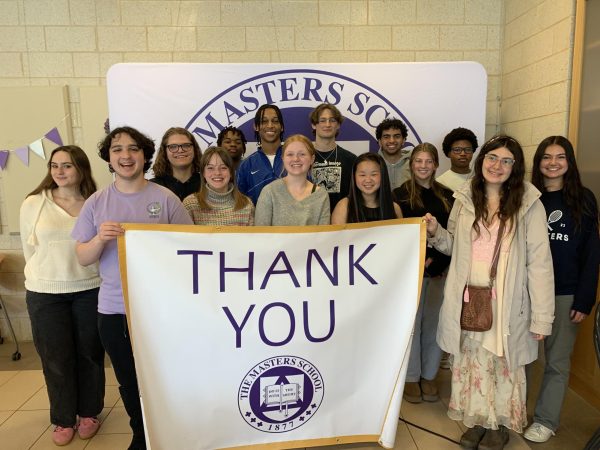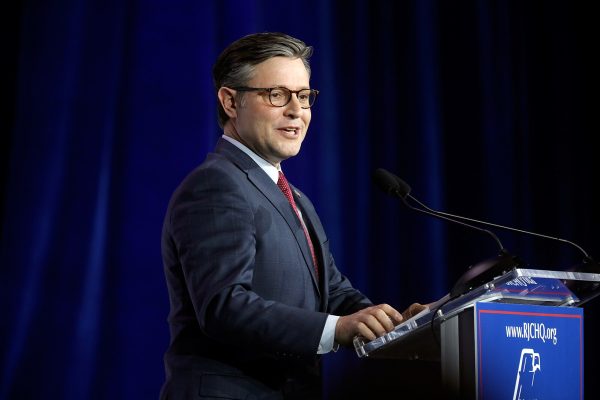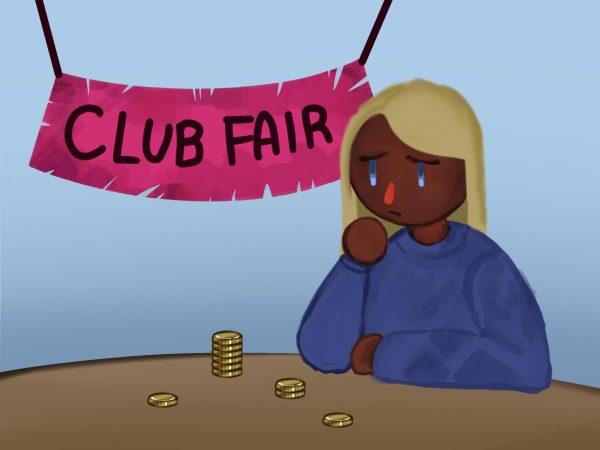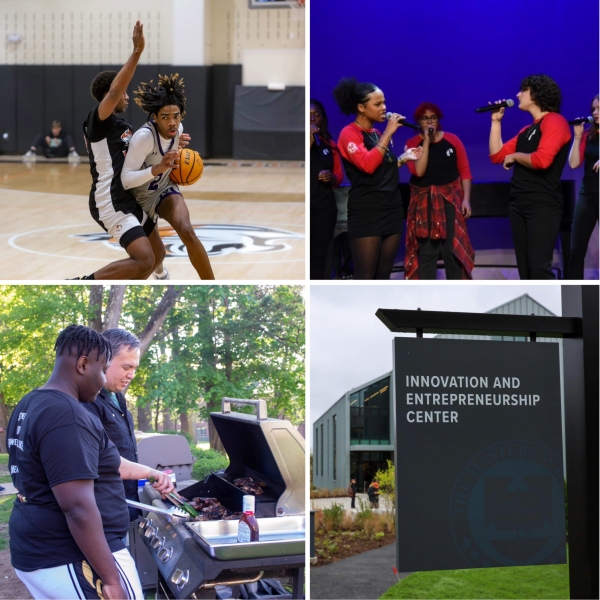Perspectives on a declining industry from Central Taxi employees
January 9, 2019
Taxi driver Donna Albanese used to spend her busy weekend nights driving teenagers from party to party: now her weekend business at Central Taxi in Scarsdale, NY, is all but dead since the rise of apps like Uber, mirroring a larger decline throughout the taxi industry.
A cab driver for 25 years, Albanese and other drivers at the company have been there for decades, and are bearing witness to industry-wide losses. “This was a job for people without a skill, profession or college degree. You could work hard, long hours, and make a decent amount of money,” she said.
I sat down with Pierre Blier, the manager, to learn more. Amid the buzz of phone calls and the hum of drivers taking a moment to warm up in the intimate office space, Blier told me that Central Taxi is a fixture of the Scarsdale community, and a company which parents trust for their children. “We actually do a lot of business with The Masters School. Parents like sending us with their kids. All of our drivers are fingerprint and background-checked every year, while Uber does an online background check,” he said.
Blier said that the company makes numerous runs to Masters throughout the week, often for families who live in Scarsdale and its surrounding towns. According to Blier, Westchester residents trust Central Taxi for a variety of reasons. He noted how Central Taxi drivers walk younger children to their art classes, and how the business routinely picks up physically and mentally handicapped passengers.
“If you call a taxi anywhere in New York State it means there is some municipality that licenses you,” Blier said. Their prices are regulated by the local government, and do not change based on the level of demand. The company also cannot deny service to any customer. During the snowstorm this past November, which brought buses to a halt, Central Taxi stayed open, catering to a line of people which he described as “70 people deep.”
The last Metro-North trains enter the Scarsdale station after 2 a.m., and according to Blier, Central Taxi is there for passengers. “Late at night we are here till the last train gets in, not because it is profitable, but because the town wanted a live presence here.” Recently though, he said their live nighttime presence has provided a safe backdrop for people to wait for Ubers.
“Younger people who are passing through here will not even talk to us anymore. They whip out their phones, and stand there for 20 minutes waiting. They are afraid of us. If they asked us what our prices are locally, within a few miles, we are cheaper than Uber.” This is a radical difference from only a few years ago, when local teenagers would call Central Taxi to find out where the house parties were.
In terms of pricing, Blier said that Uber is trying to gain market-share through lower pricing, eliminating competitors, before eventually raising prices. “Their low prices are lower than anyone can do this for and stay in business, but then they have the surge pricing. During the last big snowstorm, they were charging a 380 percent surcharge,” he said.
Blier said that a ride for a Masters student to JFK would cost about 93 dollars, and a ride to the Upper West Side of NYC would cost 75-80 dollars. Uber prices vary considerably based on demand and availability of drivers.
One Central Taxi driver and former Uber employee, Jeff Deamario, has been with the Scarsdale company for just over a year. As an Uber driver in Orlando, Deamario faced a range of difficulties which led him to distance himself from the company.
“When I had a problem, there was nobody to talk to. I would be texting back and forth with nameless people, and I got no satisfaction. I said, ‘To hell with you guys,’” Deamario said.
Deamario also brought up the safety aspect of driving for Uber, noting that he was not required to have comprehensive insurance. “For me to drive for Uber, I had to show them I had a valid driver’s license, that my car was legally registered in the State of Florida, and I had the state minimum for insurance. I didn’t even have to have passenger insurance,” he said.
Blier said that if passengers have an issue with a Central Taxi ride or driver, they can call the office and speak to him directly. “People value the interaction between a human being as opposed to an app,” he said.
Albanese said that ride-sharing apps like Uber take money out of local neighborhoods and send it elsewhere. “I’m into anti-globalism, having money stay in the community,” she said. “My boss has this nice little company, he is a local guy. Now what’s happening is all that money that was going to all these individuals is going up to the top to a couple of people.”
Albanese also noted that teenage perspectives have changed over the years regarding riding in taxicabs. “Americans are very fad-oriented. It is the in thing now to use Uber. Kids used to think we were cool, they’d see us and yell ‘Central Taxi.’ Now, we’re not cool anymore,” she said.




